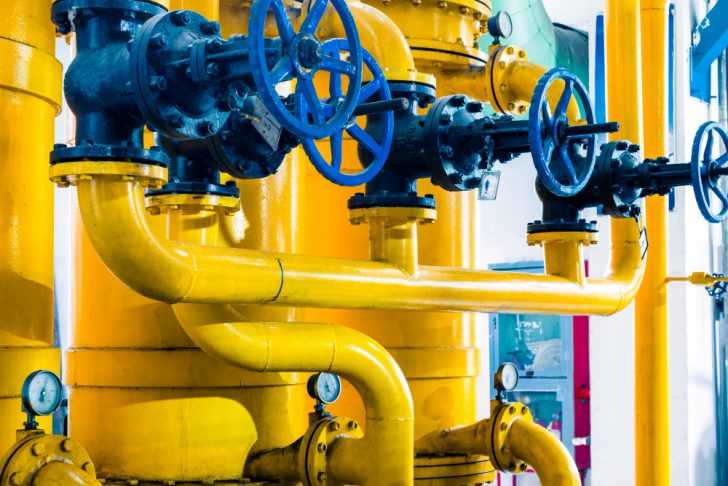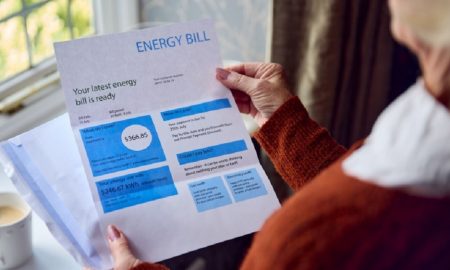
Why Is My Gas Bill So High in the Winter? Top Reasons You Need to Know

Why is my gas bill so high in the winter? High gas bills arise when the temperature drops, and households begin to see their energy bills soar. While it might seem like an inevitable part of the colder months, several factors can explain the increase in your gas bill. Understanding these reasons can help you take steps to manage and possibly reduce your expenses.
Why Is My Gas Bill So High in the Winter? 6 Main Causes
1. Rising Gas Supply Rates
One of the primary reasons for a spike in your gas bill is the increase in gas supply rates. A variety of factors, including global demand, natural disasters, and geopolitical events, influence the price of natural gas. For instance, disruptions in natural gas production due to weather events or international conflicts can reduce supply, driving up prices.
Additionally, the natural gas market is complex and affected by supply and demand imbalances. If you’re on a variable rate plan, you’re more likely to feel the impact of these fluctuations directly in your bill. On the other hand, those on a fixed rate might avoid sudden increases but may still pay more if rates rise over time.

fanjianhua | Freepik | One of the primary reasons for a spike in your gas bill is the increase in gas supply rates.
2. Increased Usage Due to Cold Weather
Winter naturally brings colder temperatures, which leads to an increased demand for heating. Many households rely on natural gas to heat their homes, and as the temperature drops, furnaces, and heaters work overtime to maintain a comfortable indoor environment. T
his heightened usage significantly contributes to higher gas bills. Even if the cost per unit of gas remains the same, using more of it will inevitably result in a higher bill. Additionally, extreme cold can strain heating systems, making them less efficient and causing them to consume more energy than usual.
3. Inefficient Home Appliances
Outdated or inefficient appliances can also be a major contributor to high gas bills. Older models of furnaces, water heaters, and other gas-powered appliances often use more energy to perform the same tasks as newer, more efficient models. If your home is equipped with appliances that are nearing the end of their lifespan, they could be driving up your gas usage.
Upgrading to energy-efficient appliances might require an initial investment, but it can result in significant savings on your gas bill over time. Look for appliances with the Energy Star label, as these are designed to use less energy without sacrificing performance.
4. Unawareness of Leaks and Inefficiencies
Sometimes, the reason for a higher-than-expected gas bill can be as simple as an unnoticed leak or inefficiency in your home’s gas system. A small leak in a gas line or a malfunctioning appliance can lead to wasted gas and increased costs. These issues might not be immediately obvious, especially if the leak is outside or in an infrequently used area.
Regular maintenance and inspections can help identify and fix these problems before they lead to significant financial impact. It’s also essential to ensure that your heating system is operating efficiently and that you’re not unknowingly wasting energy.

Anıl Karakaya | Pexels | A small leak in a gas line or a malfunctioning appliance can lead to wasted gas and increased costs.
5. Poor Insulation and Drafts
Insufficient insulation and drafts are common culprits behind higher gas bills in the winter. Heat loss through poorly insulated walls, ceilings, and floors forces your heating system to work harder to maintain a comfortable temperature. Similarly, drafts around doors and windows allow cold air to enter your home, further increasing the workload on your furnace.
Addressing these issues by adding insulation, sealing drafts, and using weather stripping can help retain heat and reduce your gas consumption. Even small changes, like adding door sweeps or insulating your attic, can make a noticeable difference in your energy bills.
6. Global Events and Supply Chain Issues
Another reason why gas bills tend to rise during the winter is the impact of global events and supply chain disruptions. Natural disasters, such as hurricanes or severe winter storms, can damage infrastructure and reduce the availability of natural gas. Additionally, geopolitical conflicts can affect global supply lines, leading to increased competition for limited resources.
These factors combine to create a volatile market where prices can spike unexpectedly, leaving consumers with higher bills. While these events are largely beyond your control, being aware of their potential impact can help you plan and budget more effectively.
More in Financial Planning
-
`
Investor David Einhorn Thinks Peloton Can Be Worth Five Times More IF It Cuts Costs
David Einhorn, founder and president of Greenlight Capital, has a bold vision for Peloton. He believes the struggling fitness company could...
November 7, 2024 -
`
How Interactive Matter Maps Improve Legal Research and Planning
Interactive matter maps have transformed legal research and planning by simplifying how law firms manage complex matters. These tools help legal...
November 1, 2024 -
`
The Role of Global Mobility in Business Planning for 2025
In an era where the competition for top talent is fierce, the significance of global mobility in business planning cannot be...
November 1, 2024 -
`
Will AI Legal Advice Empower or Exclude Those in Need of Justice?
The rapid advancement of technology has introduced AI legal advice into the legal profession, creating both excitement and concern. Law firms,...
October 25, 2024 -
`
Trump vs. Harris – Who Does Hollywood Support?
As the race for the White House heats up, celebrity endorsements have become an influential force in shaping public opinion during...
October 22, 2024 -
`
How to Understand Your Energy Bill and Prevent Common Billing Errors
Understanding your energy bill is essential for managing household expenses and catching potential errors. Your energy bill offers a breakdown of...
October 18, 2024 -
`
Is Shawn Mendes’ Relationship With Camila Cabello Finally Clarified?
Recently, Shawn Mendes shared insights into his connection with Camila Cabello during an interview with Jay Shetty. Their relationship, which has...
October 15, 2024 -
`
China Stimulus Fuels Market Surge, But Can It Save the Ailing Economy?
The recent China stimulus measures have sparked renewed optimism in the markets, but doubts remain about whether these efforts will be...
October 10, 2024 -
`
Top 12 Little-Known Savings Tips for Cutting Expenses Fast
Are you looking for the best ways to save money? Saving money often feels like a daunting task, but it doesn’t...
October 10, 2024















You must be logged in to post a comment Login